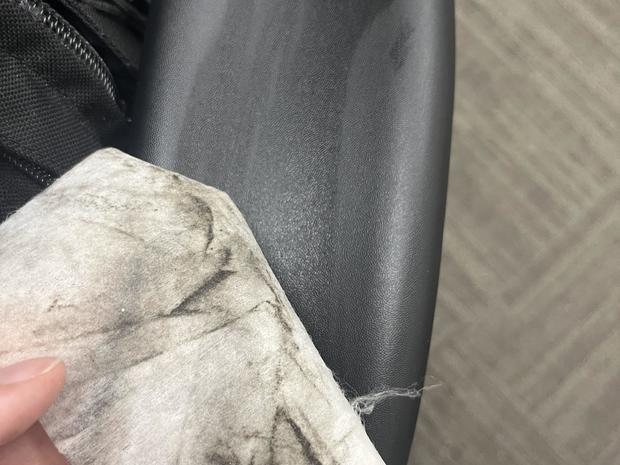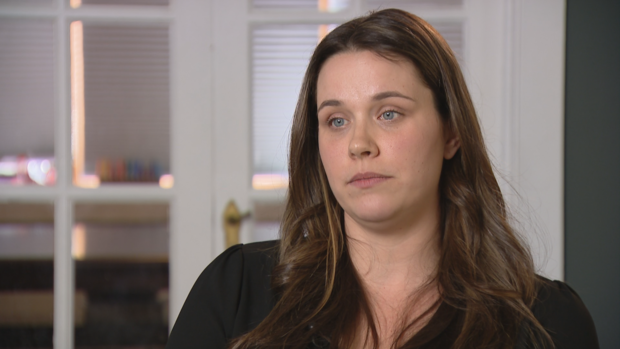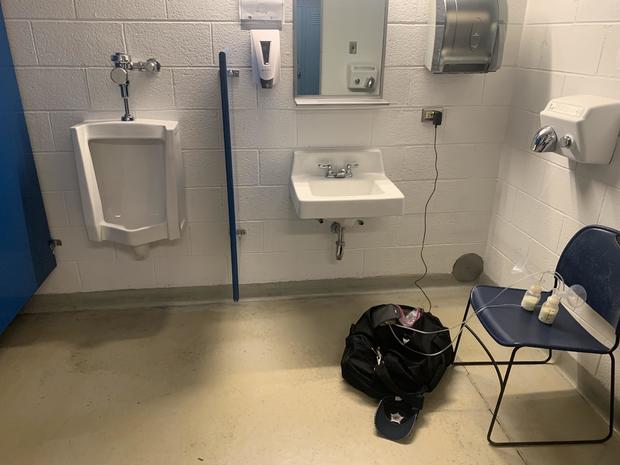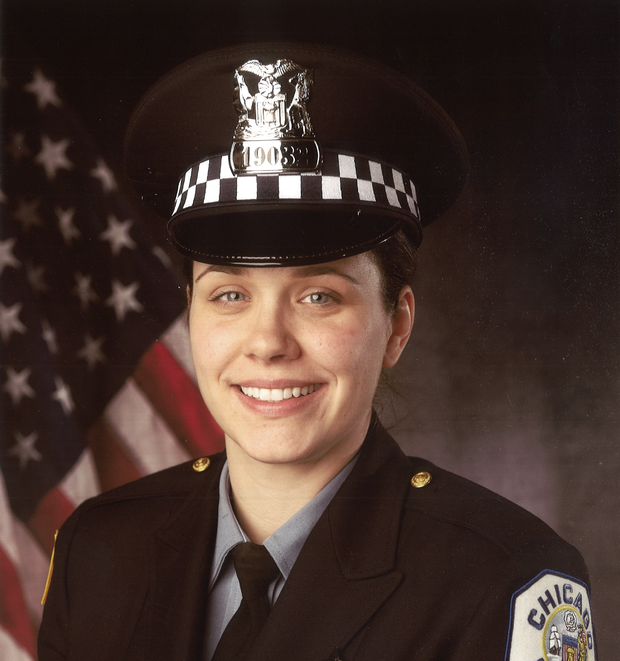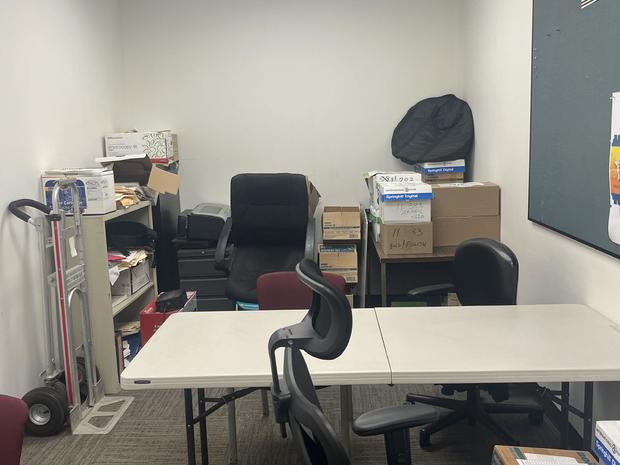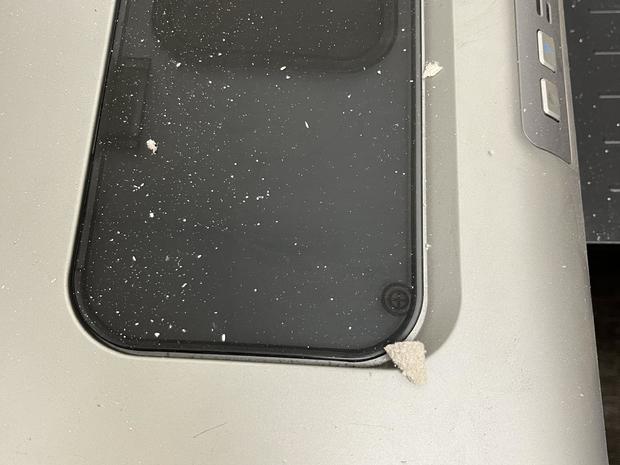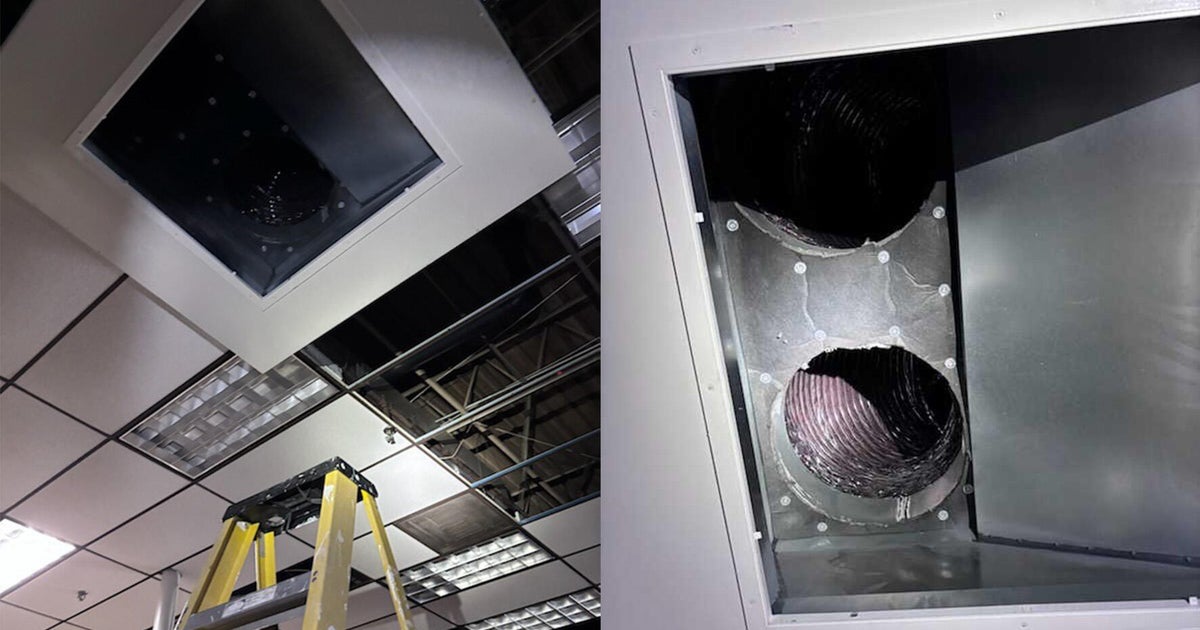Chicago police officer reveals what new moms face on the force
CHICAGO (CBS) – For three years, Chicago Police officer Erin Kreho has documented filthy conditions inside rooms she was told to use when she needed to pump breast milk. She faced unsanitary conditions and a lack of privacy after having her children. Kreho also has filed formal complaints about the state and federal violations. Despite that, she says the Chicago Police Department has failed to fix the problems.
"It shouldn't involve cleaning a room or asking to use a place that your coworkers can't see you... in a state of undress," said Kreho. "Or worrying about the contaminants that are, you know, obviously falling into the milk."
Kreho said she would have to use wipes to clean very dirty spaces and chairs she used before pumping.
Kreho has had two children while on the force, but after returning to her job as a Chicago police officer, she faced difficult and degrading challenges to using her breast pump.
"My face was so red the entire time, and I was just crying it was just humiliating," said Kreho about one of many embarrassing moments, including other officers walking in while she was pumping. "I'd be undressed in front of my coworkers and pumping milk."
Federal and state statutes require employers to provide lactating women with a clean room to pump with a locking door lock for privacy. It can't be a bathroom. Kreho says the department, entrusted with upholding the law, has been breaking it. She began collecting evidence, photos and videos to document the poor conditions for the past three years.
"If you wouldn't have lunch there, I really shouldn't be pumping milk for a baby and I was," said Kreho .
She said she was sent to bathrooms to pump and had to drag in chairs and sit near the outlets she could find.
"I'm putting my bag on the floor. The pump would go on my lap, and yes, I'm very close to a urinal," said Kreho. "I was frustrated, I was really anxious. I would come home nauseous about it."
She says her career as a Chicago police officer started off great. Her image was even used on a recruitment poster.
But all that changed when she had a baby in 2020 and returned to work facing problems over where she could pump.
"That was one of the worst times just emotionally for me," said Kreho. "I was initially told to pump in the backseat of the squad car."
She says had to pump in all kinds of unacceptable conditions - in dirty bathrooms, locker, and storage rooms.
She filed two complaints, in 2021, with the Illinois Department of Human Rights. Each one detailed the poor conditions.
"Illinois Department of Human Rights agreed with me on some of the instances of discrimination and disagreed with me on other ones," said Kreho.
She is not the only one experiencing issues. Jessica Lee, a senior attorney at the Center for WorkLife Law in San Francisco, said Kreho's case is overwhelmingly common among women working for police and fire departments around the country.
"Since 2022, we found that of all the lactation discrimination cases decided under those federal sex discrimination laws, 41% were from first responders," said Lee. "So even though only a small segment of the population are woman working in those fields, they really dominate the legal cases, and that's a terrible trend when these are the people tasked with upholding the law and protecting our communities."
She says employers in male-dominated industries have been failing to treat women fairly for ages. There have been other similar lawsuits against the Chicago Police Department and Chicago Fire Department, along with police departments in New York, Philadelphia, and New Jersey.
"It's definitely still a macho culture amongst police officers, firefighters, other first responders," said Lee. "A lot of women who filed discrimination cases have said they didn't quite fit in. And as soon as they expressed they needed to go pump milk or were breast feeding, all of a sudden feeling a torrent of harassment."
Lee reiterated Illinois workers have a right to break time for pumping in clean private spaces that are not bathrooms.
"I did not expect that it would be this hard," Kreho said about her attempts to get a clean room for pumping. "There have been several occasions that I had to dispose of the milk that I pumped - if the room was particularly dirty."
She says after her first two complaints, the problem was not getting fixed. She was told to use a filthy storage room. It was filled with discarded office equipment, boxes, and other supplies.
It also was covered with white specks of material.
"It was falling from the ceiling. It was all over the room and it was falling continuously," said Kreho. "Which I worried about contaminating the milk."
Kreho then filed another complaint this summer. This one is with the Equal Employment Opportunity Commission (EEOC). She is frustrated and discouraged about how this is impacting her job and children. She fears retribution too.
"I've been treated differently for complaining, I would say for sure," said Kreho. "It's really hard to advocate for yourself over, and over, and over again and just not get any result."
Her complaint triggered a Chicago Police Department Internal Affairs investigation. It was opened in July 2021. Two years later - nothing has happened. Kreho is still waiting to just talk to an investigator.
The Chicago Police Department declined to comment because of pending litigation.
